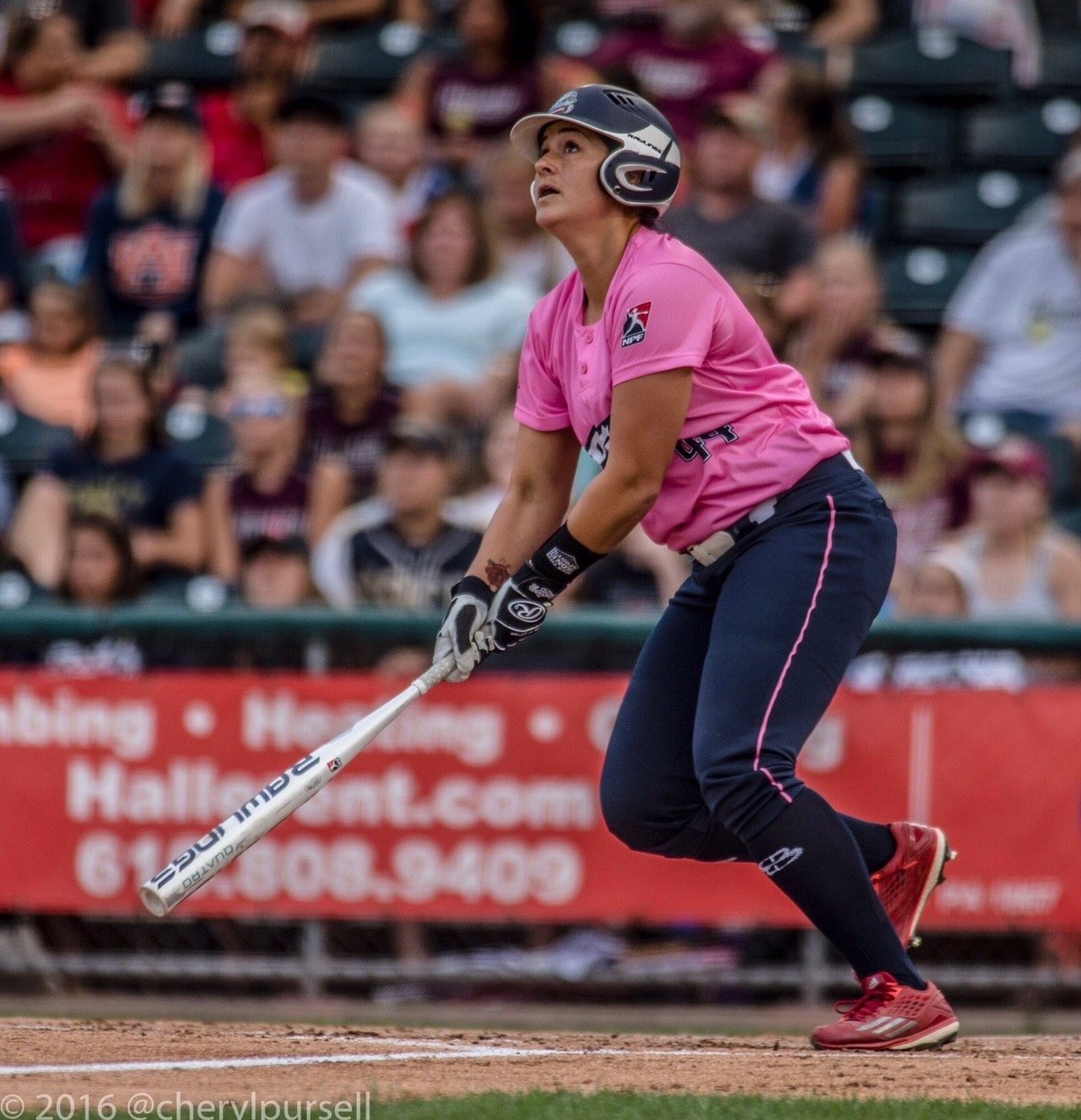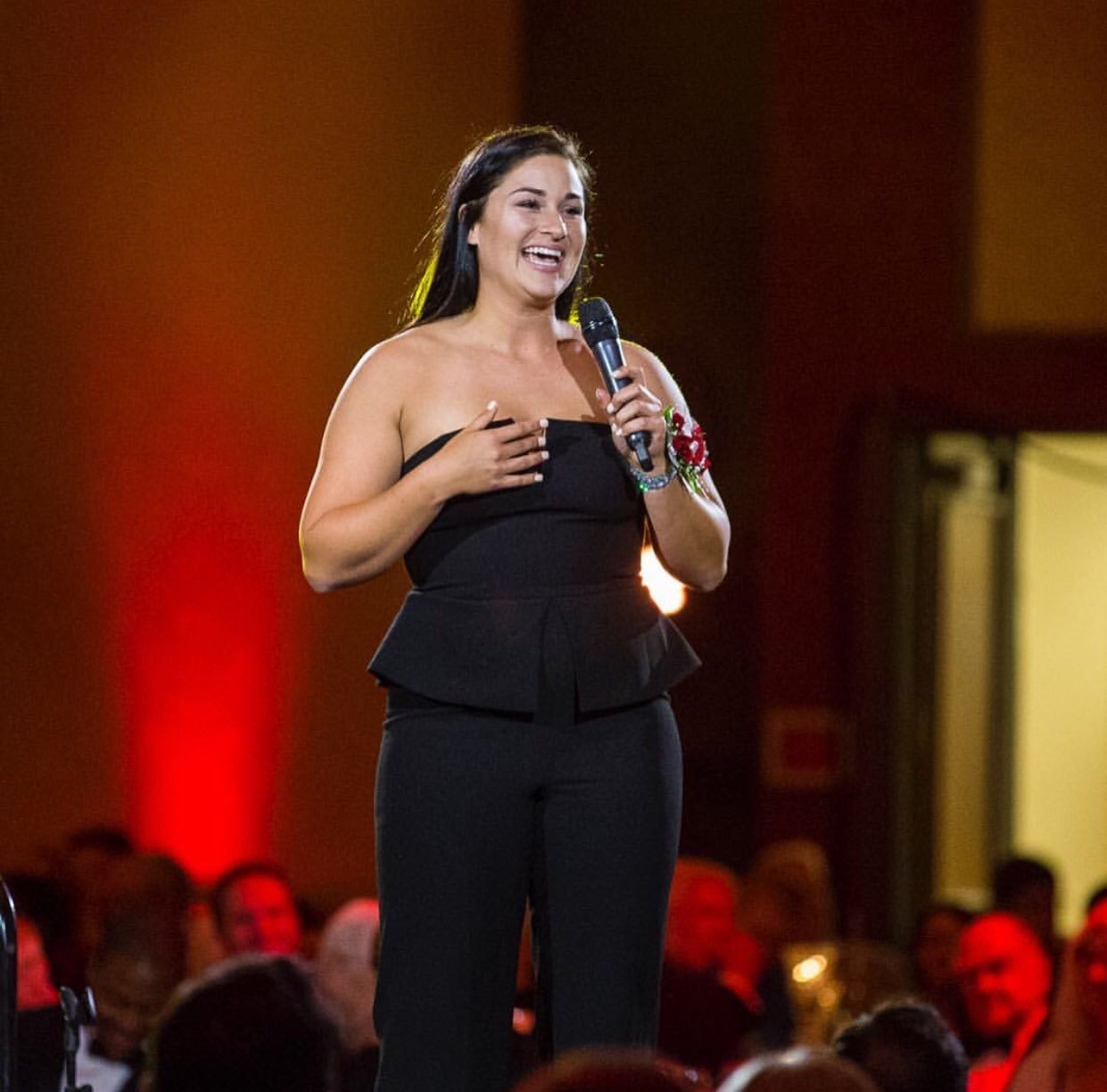Interview with softball player Lauren Chamberlain
LAUREN CHAMBERLAIN is a boss lady, iconic softball player, commissioner of the WPF, ambassador and host for the MLB, founder of LC Management, wine enthusiast, and a momma to her dog Quavo. She played softball for the University of Oklahoma and graduated in 2015 with a degree in Women and Gender Studies. In this podcast we talked about injuries and setbacks, the difference in playing softball in college and professionally, and her favorite moment in playing softball. We are excited to have her on the podcast and hope you enjoy this episode!
Below I have written up the majority of what we talked about but you can listen HERE to hear the whole thing!
Q: Talk about injuries and setbacks - how did you handle going through your injuries?
A: I had quite a few injuries, the first one was 2014 my junior year. I always played balls to the wall, really hard, so I think at times it caught up to me. In 2014 we had a last minute lift before leaving for a tournament and I did a box jump and pinched something in my back and lost feeling in my legs for about 10 seconds. I went into the training room and turns out I had slipped a disk. Any time it’s a nerve, you need to take time off. I missed the bulk of conference but joined the team for the OSU series toward the end of conference. It was challenging to go from starting every game to not being able to play. I led by example by being on the field and a lot of my identity as a player was being on the field. It was a tough flip to not be able to physically contribute. Right before that, I ended up getting staph in my throat somehow. I got really sick and ended up dropping close to 20 pounds. During my first series back at OSU, I decided to steal a base and I got another injury in my knee. I was hitting off one leg for the rest of my junior year. That was my college experience with injuries. It was a good challenge to lead my team while not on the field. I thought it was a good learning experience to have those kinds of setbacks before going into pro.
When I was in pro, I had a repair done on my throwing shoulder. I re-slipped my disk my second year of pro and I ended up needing to get surgery my third year of pro.
Q: What was the difference between college and pro softball for you?
A: A transition that’s not talked about a lot but being a rookie is hard. The best of the best from each college team are now in the league. It’s such a small market with so many few players and it’s the cream of the crop out there. As a hitter, you’re not going to face a pitcher that isn’t successful. I did struggle my rookie year because I felt like everyone was throwing the kitchen sink at me and they’re gunning for me because they know my accomplishments. In college you are told what to do, what to eat, when you’re working out, everything laid out for you on the regimen and schedule. When you become professional there is no one is there to check on you to make sure you’re doing all of those things. It’s a lot of pressure with a completely different environment that it is professional and you have to act professional. The responsibilities as an athlete and self accountability was very different for me.
Q: What was the hardest thing about retiring from competing?
A: There is this thing you have inside of you that has been operating and the switch has been switched on since I was 10 years old that I have to be the best. Having the outlet for my competitive drive and go mode, to then just flipping that switch off and being in the normal world is difficult. Everything that you have to do, and the mindset to be elite and stay elite and then to go into the regular world is just a shock. What am I supposed to do now? Where am I supposed to put all this energy now? I had this outlet for 20 years and that’s a majority of your life and your thought process has been one way for so long. I felt it physically, so out of sorts; not having to go train and doing that yearly routine around training and season. What am I looking forward to? That can mentally screw you up. Softball was so good for me because I do think I had a form of ADD and softball is super stimulating that I constantly had something to do. With my newfound free time, I started to party a lot and picked up really bad habits and putting my energy into things that were really bad for me. 2019 was a really hard year for me. All of a sudden you’re by yourself and you’re like I’ve never been by myself before. I loved cycling, going to a cycle bar, and walking. If I don’t walk or move around then I’ll be going nuts. Quavo is my guy and has helped me a lot, too.
Q: Did you consider being a full time college / team coach?
A: Yeah, never. I don’t know if I’m passionate enough about it to be at the field every day like that. We just spent 20 years doing this and I couldn’t do it. These girls really depend on you and so I knew it’s not for me so I didn’t want to do that. I love giving lessons and it’s so rewarding seeing the lightbulb moment when someone gets what you’re teaching them. Having a hand in the development of a young player is great. As far as team coaching, no, I’m good.
Q: Do you feel like you would have done a different degree if you weren’t a student-athlete?
A: I wanted to be in broadcast journalism and be a TV personality because I knew I could speak and I loved the camera. It was obvious the workload wasn’t going to add up with softball. I had to pick and I ended up in Women and Genders Studies. It does help me advocate for women and I’m thankful for what it brings me. I also found out that if you have a talent then degrees are just degrees. If you know people and you work hard for yourself you can get yourself into whatever you want to do. I knew I wasn’t technically on paper qualified for being an interviewer, but I sent in a mock video of me interviewing so I got that role with the MLB. Having a core belief in who you are, and what you bring to the table, and being able to say yes will get you far. Having those thoughts of thinking I’m not qualified could hold you back and it’s important to go after something that you want to do and you have the skillset for.
Q: What was one of your favorite moments while competing?
A: It’s funny because we ended up losing, my final game and series was Super Regionals at Alabama in 2015. Bama’s fans pull up and it is a tough place to play but I loved those types of places. Just playing in that series and that atmosphere, that series specifically stands out as one of my favorite softball experiences. Bases loaded, full count, I struck out and hearing the crowd on that and then hitting a couple of bombs to put my team on top, but then an Alabama player hits a grand slam to send them to the World Series. Even though we didn’t go and I ended my college career there it was an incredible experience.
Q: What was your goal behind your business with the “whole lotta body” / “heavy hitters” and how did that fit in with your ability to accept and transition out of playing?
A: When I did the body issue I was still playing in 2018. The response I got and the narrative around why I did it and wanting to be a normal body on there was cool and a lot of people related to it. I’ve always had a store and had merch as a side thing. I wanted to get the people who related to it as something for them to have. The heavy hitter mentality was something on and off the field for me. It was a way to build my brand outside of playing and I wanted it to be something I could do after I stopped playing so I had something set up for me to do on the business side.
Q: What advice would you give to someone who is recently done playing a sport?
A: Find something that you can put that same kind of energy into. That fire and energy can be put into something else. There are so many valuable tools, think of it like the tool box you carry with you for the rest of your life. You do have an advantage out in the business world as an athlete. We almost have that edge because we’ve experienced all these things that make you a great employee. Apply everything you gained from your sport.
Q: What advice would you give to someone who is currently playing a sport?
A: The biggest thing is that this is something that you do. There is something in your core and look at softball as something that you do and you are blessed to play this sport. Re-establish your love for the game like you did as a kid. It becomes a job and it’s easy to lose sight of what that game is to you. Take the pressure off of yourself and remember that this is a game. Figure out what else you like to do, don’t make it so everything.
Q: Do you have anything else to add?
A: I would say, since this is once an athlete always an athlete, even though you retire and you stop playing and pivoting to the next stage in life, there is a lot of power in making your own decisions. All of a sudden being in charge of your life is also very freeing and powerful. Reframe the situation that it’s a very positive change and embrace it.
If you have any more questions for Lauren, please leave comments below or contact me. If you or someone you know is struggling, please call the Suicide Hotline. It’s toll free and available 24/7 at 800-273-8255.
Once An Athlete’s mission is to provide resources and support for current and former athletes. Please support our mission by making a donation.
Are you or someone you know currently struggling with what happens in life after sports? Or did you already go through that transition to life after retiring competitive sports and wish you had more resources and support? Have you ever wondered, “what do athletes do after they are done playing sports? What’s next after sports?” Do you feel like you dedicated so much to your sport and you don’t know what to do now that you’re done competing? You’re not alone. Check out the site and join us in the journey. Once an athlete, always an athlete.
More blog posts with softball players:




